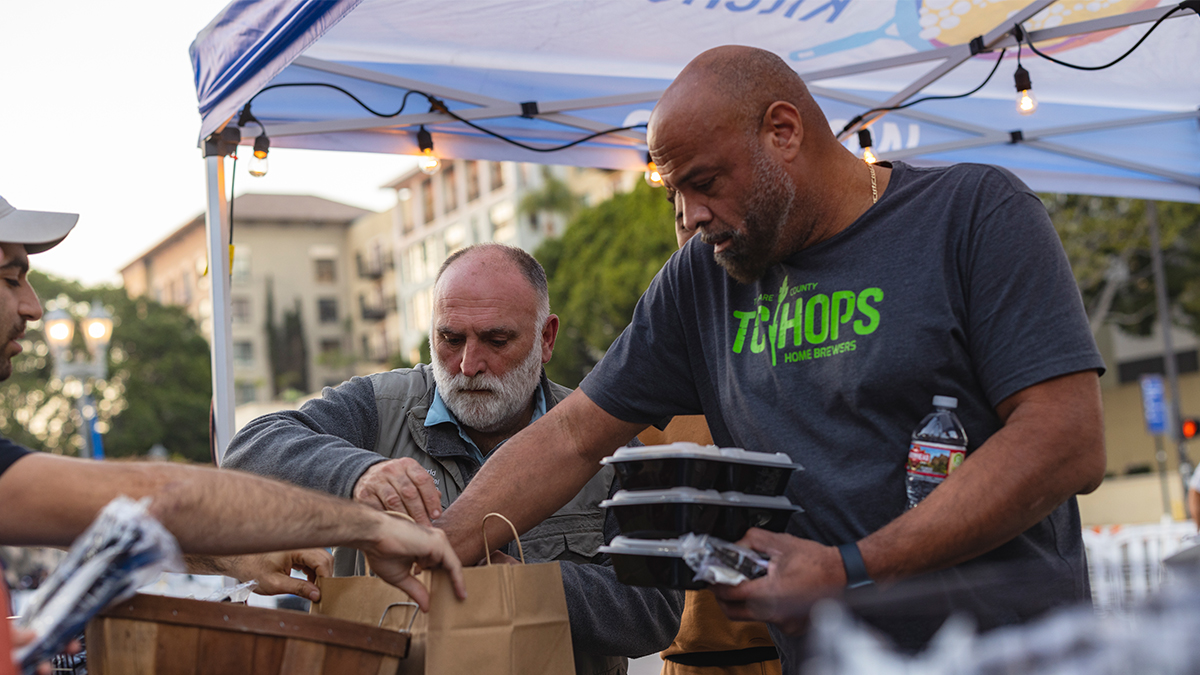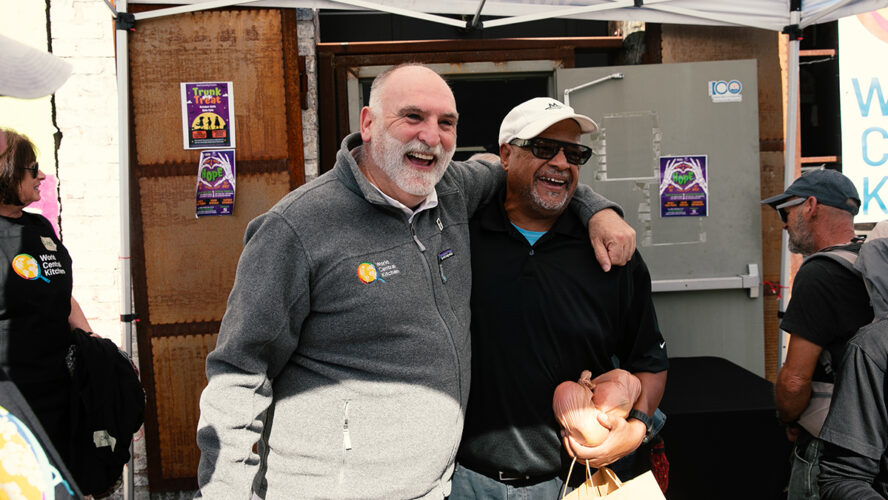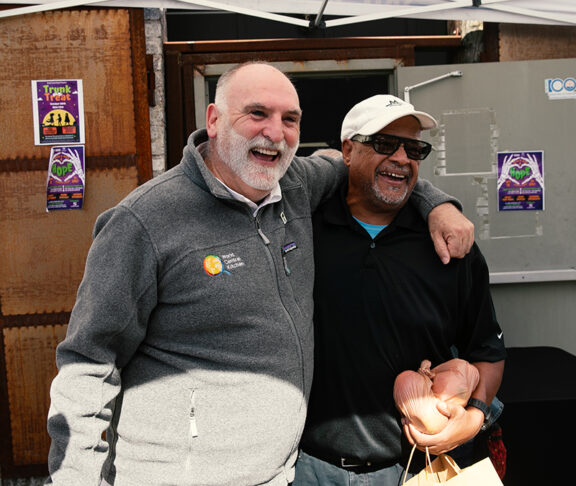A 7.0 earthquake in Haiti taught chef José Andrés what matters most when disaster hits. Here, Andrés shares his inspiration for starting his humanitarian effort, World Central Kitchen, and what he’s learned since launching the project.
What was the turning point or moment that first inspired you to launch World Central Kitchen (WCK)?
I went to Haiti in 2010 after the magnitude 7.0 earthquake to help cook. In a camp for the displaced, we were cooking these amazing local beans. I was cooking them how I was taught, and some of the people came to me, saying, “Chef, we don’t want to hurt your feelings, but this is not how we eat beans here in Haiti.” I thought, “I’m a Michelin-starred chef, and they don’t like my beans!” They taught me how to make beans their way. That’s when I learned that we can’t go into places thinking that we know what’s best for people. We have to listen to them. That was where a big part of where WCK came from — the idea that the people in their communities best know what they need.
Having served meals in the heart of so many disasters, what has surprised you most about how communities come together in crisis?
I always say, “In the worst moments of humanity, the best of humanity shows up.” People want hope, and they really will work together to make sure that happens. For example, during the wildfires in California, one of our WCK Chef Corps members, Daniel Shemtob, lost his home. He immediately went to serve meals in his food truck with WCK. He wanted to help other people as much as he could, even though his house had just burned down.
What role do you believe food plays — not just in survival, but in restoring hope — during and after a disaster?
During the worst time of someone’s life, eating a warm, familiar meal can help people feel seen and understood. One example is my friend, Alondra, who volunteered with WCK during Hurricane Maria in Puerto Rico. She was only 10 years old, serving thousands of meals to her community. She brought hope to so many people who had lost their homes, their places of work — and even family members — with a meal and a smile. Her story is a great example of how the whole community, even young people, can provide hope to others, one plate at a time.

Looking back on your journey with WCK, what’s the most important lesson you’ve learned about preparedness and humanity?
The most important thing I’ve learned about humanity is that, even through hard times, there are always people who care and want to help. But another way that people can prepare for emergencies is by taking care of each other all the time, not just during disasters, because when a community is connected, it is strong.
What are some of the most important ways communities can prepare for disasters before they happen?
One of the ways WCK makes sure we’re prepared for disasters is by having people all around the world who are ready to help. Our teams are in the United States, Latin America, Europe, Asia, and Africa. We also pre-position supplies in areas we know may need it, like in Florida during hurricane season. As for communities themselves, when the people within a community support each other, that’s when they’re most ready for disasters.


